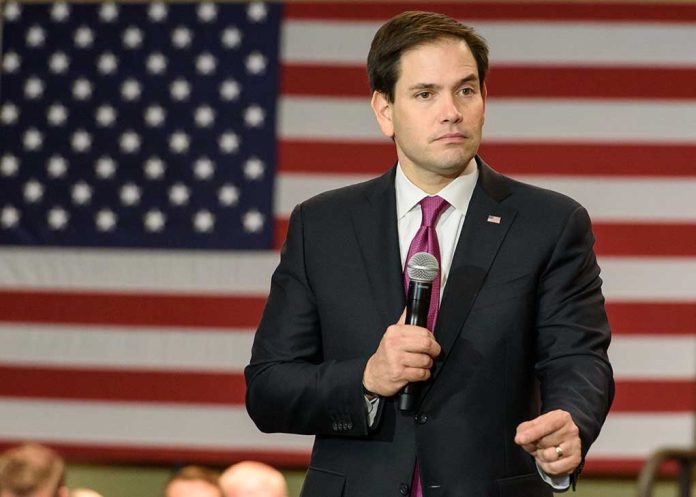
Marco Rubio’s new leadership as Secretary of State marks a profound shift in U.S. foreign policy, sparking interest in how his focus on free speech and strengthening alliances will reshape America’s role in the world.
Key Takeaways
- Marco Rubio plans to end State Department programs that may lead to censorship.
- Criticism has been leveled against past efforts prone to instigate “censorship, suppression, and misinformation.”
- The State Department will halt internal censorship while keeping track of foreign threats.
- Rubio refocuses diplomacy on American strength, prosperity, and national security.
- Rejection of global mandates on climate and mass migration are central to Rubio’s reforms.
A New Direction For the State Department
Marco Rubio, the newly confirmed Secretary of State, has announced a pivotal change in policy direction, prioritizing free speech and dismantling past initiatives that may have resulted in censorship. He emphasized evaluating whether diplomatic actions increase safety, strength, and prosperity for America at home and abroad.
Rubio pledged that the department would continue to monitor “enemy propaganda” but would halt practices that may lead to censoring American citizens domestically. These adjustments reflect an alignment with President Trump’s executive order forbidding the use of federal funds to limit free speech.
Criticism of Previous Diplomatic Strategies
Rubio has been vocal about his disapproval of former governmental programs described as engaging in “censorship, suppression, and misinformation,” particularly criticizing the Biden administration’s Global Engagement Center. The Center was accused of coercing social media platforms to suppress COVID-19 “disinformation,” leading to its shutdown after Congress denied reauthorization.
The closure led to portions of the team’s responsibilities and some funding transferring to new assignments. Rubio attacked past practices that relied more on ideology than practicality, insisting on focusing on what strengthens America without succumbing to pressures from climate or migration-focused agendas.
Strengthening Alliances and New Foreign Policy Objectives
Marco Rubio plans for the future involve revitalizing alliances, nurturing strategic partnerships, and enhancing U.S. negotiating power with emerging global players. Avoiding divisive political or cultural pushes in diplomacy, he aims for American foreign policy to concentrate on confronting great power rivalry.
The Secretary dismissed climate and migration policy pressures that potentially compromise America’s strength. He asserts that foreign relations must pivot on practicality and common sense. His immediate actions as Secretary signal a transformative chapter for the State Department, promoting diplomacy grounded on firm, national and international security-based principles.





